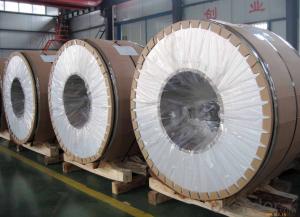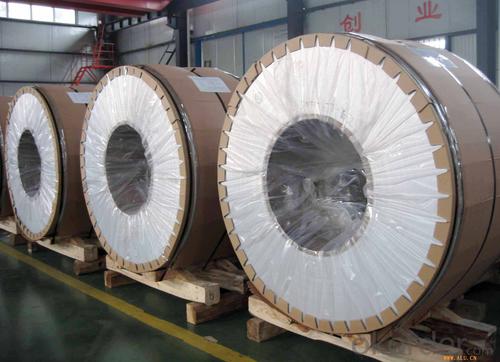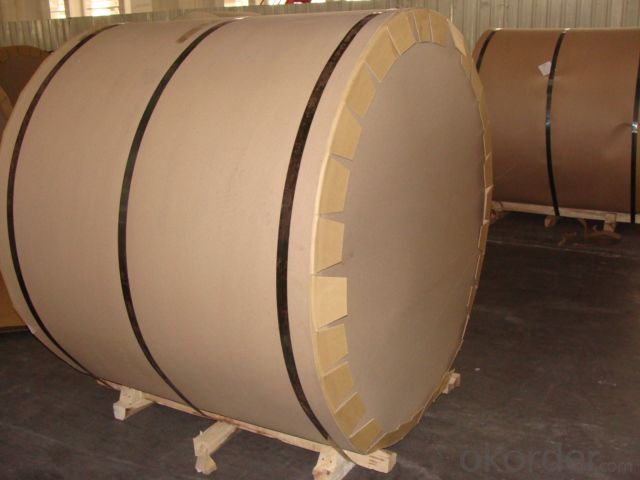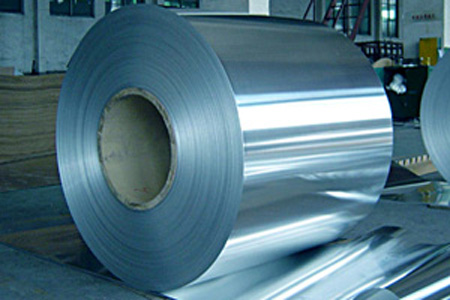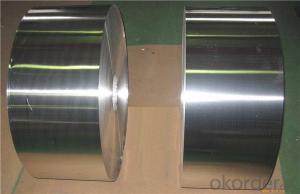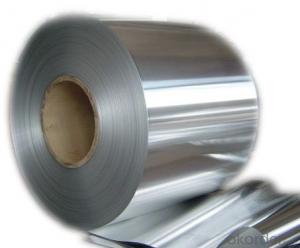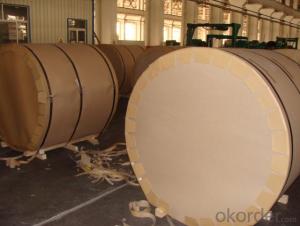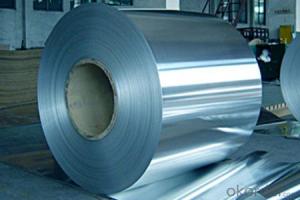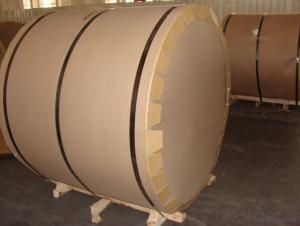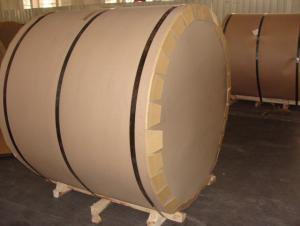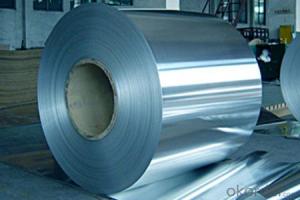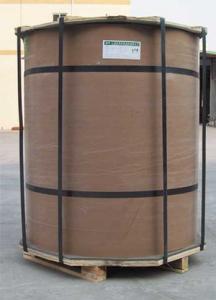Aluminum Coils Inc Ohio AA5XXX Mill-Finished Hot Rolled Aluminum Coils for Construction
- Loading Port:
- Shanghai
- Payment Terms:
- TT or LC
- Min Order Qty:
- 8 m.t.
- Supply Capability:
- 10000 m.t./month
OKorder Service Pledge
OKorder Financial Service
You Might Also Like
Specification
1.Structure of AA5xxx Mill-Finished Hot Rolled Aluminum Coils Used for Construction Description
AA5xxx Mill-Finished Hot Rolled Aluminum Coils Used for Construction has great ductility, heat conductivity, anti-corrosion and moisture resistance properties.
AA5xxx Mill-Finished Hot Rolled Aluminum Coils Used for Construction is widely used for electronics, instruments, lighting decoration, packing industry, house decoration, curtain wall, honeycomb-core panel, sandwich panel, aluminum composite panel and aluminum composite pipes.
2.Main Features of AA5xxx Mill-Finished Hot Rolled Aluminum Coils Used for Construction
a.excellent quality,good credit;competitive price,comfortable service;Samples for free
b.fast delivery,small order accepted;Good rust resistance
c.We can control the delivery time within 35 days.
3.AA5xxx Mill-Finished Hot Rolled Aluminum Coils Used for Construction Images
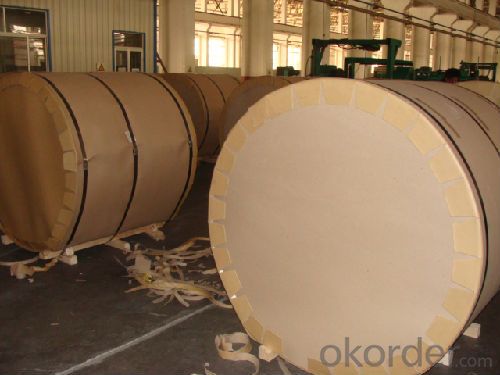
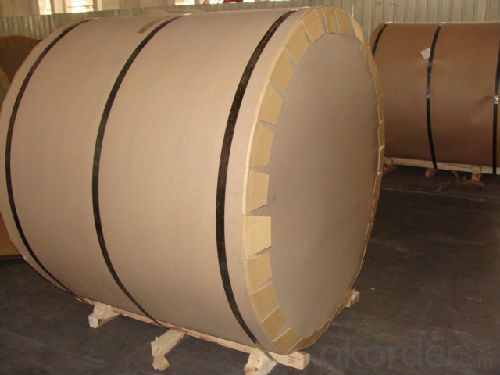
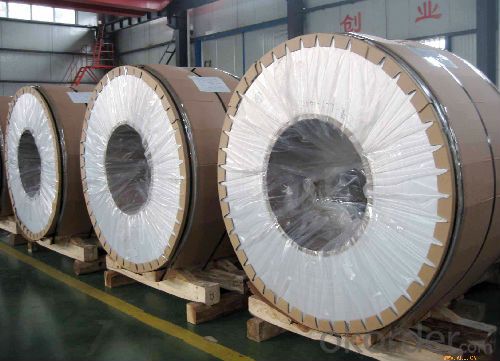
4.AA5xxx Mill-Finished Hot Rolled Aluminum Coils Used for Construction Specification
| Alloy | AA5xxx (AA5052,AA5083,AA5754 etc.) |
| Temper | H14,H16,H18,H22,H24,H26,H32,O/F |
| Thickness | 0.2mm--100mm |
| Width | 30mm--1700mm |
| Standard | GB/T 3880-2006 |
5. FAQ of AA5xxx Mill-Finished Hot Rolled Aluminum Coils Used for Construction
What is the quality standard?
---Usually our standard is GB3880-2006
What is the largest width?
---It is 2300mm
What is the MOQ?
---Usually we can accept 80 tons.
- Q: What specific conditions or criteria must be met when utilizing aluminum coils in construction projects?
- <p>Yes, there are special requirements for using aluminum coils in construction. These include adherence to specific industry standards for material strength and durability, such as ASTM or ISO specifications. It's crucial to ensure that the aluminum coils have the appropriate thickness and width to withstand the structural loads. Corrosion resistance is also a key factor, as aluminum is prone to oxidation. Protective coatings or treatments may be necessary. Additionally, the coils must be compatible with other construction materials and should be tested for their performance under various environmental conditions. Compliance with building codes and safety regulations is mandatory to avoid any structural or safety issues.</p>
- Q: Are aluminum coils suitable for use in the automotive industry and what are their applications?
- <p>Yes, aluminum coils are widely used in the automotive industry due to their lightweight, high strength, and corrosion resistance. They are utilized in various applications including vehicle body panels, engine components, heat exchangers, and electrical wiring. Aluminum's recyclability and energy efficiency also contribute to its popularity in automotive manufacturing, helping to reduce vehicle weight and improve fuel efficiency while adhering to environmental standards.</p>
- Q: This question asks for the distinctions between two forms of aluminum used in various industries: coils and sheets.
- <p>Aluminum coil and aluminum sheet are both flat aluminum products but differ in form and usage. Aluminum coil is a long, continuous roll of aluminum that can be easily cut to length and is often used for manufacturing processes like stamping, bending, and forming. It's ideal for applications requiring a consistent and uniform supply of material. On the other hand, aluminum sheet is a flat, rectangular piece of aluminum with a specific thickness, width, and length. It is used for applications where a single piece of material is needed, such as in construction, signage, and decorative purposes. The main difference lies in the form factor and the way they are used in manufacturing and construction processes.</p>
- Q: Do you think that stainless steel cookware with an aluminum core is safe? I am concerned about the links between aluminum and Alzheimers disease. Also, if anyone has heard of any health risks to using non-stick varieties of pans? I havent, but I would be curious to know if anyone else has.
- Aluminum cores are fine. They are wrapped in stainless (make sure), or stacked inside stainless steel. Aluminum is one of the most common elements in the world. We're exposed to it in more ways that you can count. Links to alzheimers are inconclusive. From what I understand, non-stick skillets are ok as long as you don't overheat them and cause the material to burn (you can smell the fumes when overheated). I use mine with medium heat, like for omelettes or grilled cheese sandwiches, but never for searing a steak.
- Q: This question asks for methods to assess the quality of aluminum coils.
- <p>To determine the quality of aluminum coils, consider several factors: purity and alloy composition, which affects strength and corrosion resistance; surface condition, checking for scratches, dents, or impurities that can affect performance; mechanical properties like tensile strength and elongation; and dimensional accuracy, including thickness, width, and straightness. Conduct tests such as hardness tests, tensile tests, and corrosion resistance tests. Visual inspection and using measuring tools for dimensional checks are also crucial. Compliance with industry standards and certifications from recognized bodies can also indicate quality.</p>
- Q: Are there any recycling programs for used aluminum coils?
- Indeed, recycling programs for used aluminum coils are readily accessible. Aluminum, being highly recyclable, can be melted down and repurposed without compromising its quality. Numerous recycling centers and scrap metal yards willingly accept aluminum coils for recycling purposes. Furthermore, certain HVAC companies, which frequently employ aluminum coils in air conditioning systems, have implemented their own recycling initiatives. It is advisable to consult your local recycling center or HVAC companies to obtain information regarding the specific recycling programs available for used aluminum coils in your vicinity.
- Q: What is the typical lead time for manufacturing aluminum coils?
- The lead time for manufacturing aluminum coils can vary depending on several factors, such as the order's specific requirements, the complexity of the manufacturing process, and the manufacturer's current demand and capacity. Typically, the lead times for aluminum coil production range from a few weeks to several months. For standard aluminum coil orders that fall within the manufacturer's regular production capabilities in terms of specifications and quantities, the lead time is usually shorter, around 4-8 weeks. This timeframe includes the sourcing of raw materials, processing, and quality control checks. However, for custom or specialized aluminum coil orders that necessitate specific dimensions, finishes, or additional processing steps like coating or embossing, the lead time can be longer. These types of orders may require additional time for design and engineering, tooling setup, and testing. Consequently, the lead time for these orders can extend to approximately 8-12 weeks or even longer. It is important to consider that lead times can also be affected by external factors like the availability of raw materials, transportation delays, or unforeseen production issues. Therefore, it is advisable to communicate with the manufacturer to obtain an accurate estimate of the lead time for specific aluminum coil orders.
- Q: What is the tensile strength of an average aluminum coil?
- The tensile strength of an average aluminum coil can vary depending on the specific alloy and manufacturing process used. However, commonly used aluminum alloys typically have a tensile strength ranging from 100 to 300 megapascals (MPa).
- Q: How are aluminum coils used in the manufacturing of signage?
- Aluminum coils are commonly used in the manufacturing of signage as they offer durability, flexibility, and weather resistance. These coils are typically cut, shaped, and molded into desired sign shapes and sizes. They can be used as a base material for various types of signage, including billboards, outdoor signs, and traffic signs. The lightweight nature of aluminum coils makes them easy to handle and install, while their corrosion-resistant properties ensure the longevity of the signage.
- Q: Are aluminum coils suitable for electrical grounding applications?
- Yes, aluminum coils are suitable for electrical grounding applications. Aluminum is a highly conductive material, with approximately 61% of the conductivity of copper. It is commonly used in electrical applications where conductivity and corrosion resistance are important factors. Aluminum coils provide a cost-effective alternative to copper coils for grounding purposes. Additionally, aluminum coils are lightweight and easy to work with, making them a popular choice for electrical grounding applications. However, it is important to ensure proper installation and maintenance to prevent any potential issues like galvanic corrosion when connecting aluminum to other metals.
Send your message to us
Aluminum Coils Inc Ohio AA5XXX Mill-Finished Hot Rolled Aluminum Coils for Construction
- Loading Port:
- Shanghai
- Payment Terms:
- TT or LC
- Min Order Qty:
- 8 m.t.
- Supply Capability:
- 10000 m.t./month
OKorder Service Pledge
OKorder Financial Service
Similar products
Hot products
Hot Searches
Related keywords
